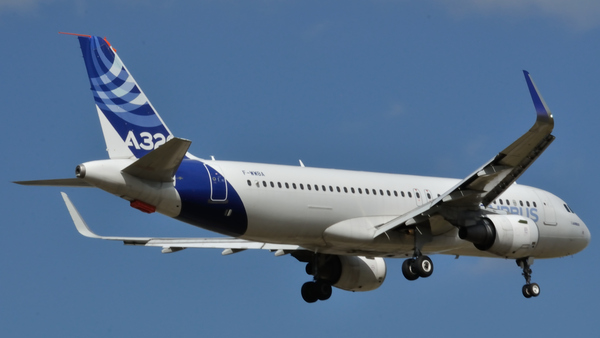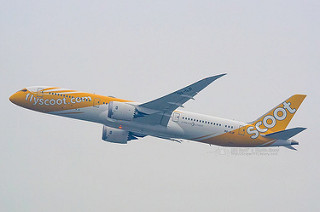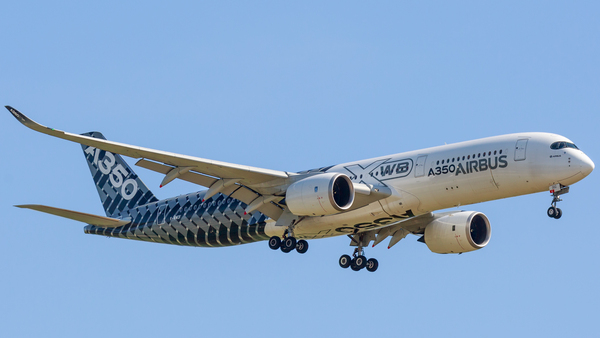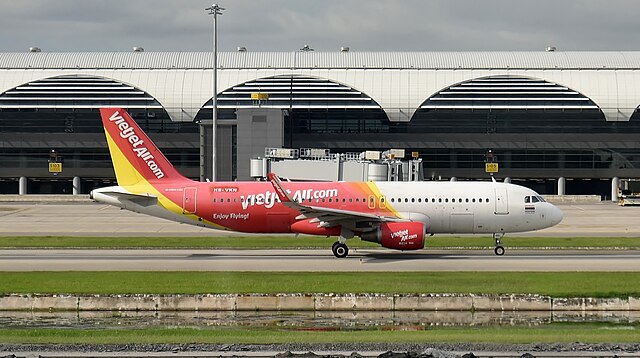Scoot B789 near Guangzhou on Sep 7th 2024, turbulence injures 11
Last Update: October 18, 2025 / 18:31:22 GMT/Zulu time
Incident Facts
Date of incident
Sep 7, 2024
Classification
Accident
Airline
Scoot Airlines
Flight number
TR-100
Departure
Singapore, Singapore
Destination
Guangzhou, China
Aircraft Registration
9V-OJI
Aircraft Type
Boeing 787-9 Dreamliner
ICAO Type Designator
B789
The airline reported 4 passengers and 3 members of the crew received injuries, one passenger was taken to hospital, the others treated at the airport.
The aircraft departed for the return flight with a delay of about 2 hours.
On Oct 18th 2025 Singapore's TSIB released their final report reporting one cabin crew and one passenger received serious injuries and 9 cabin crew received minor injuries concluding the probable causes of the accident were:
Between 0003hrs when the aircraft entered Sanya FIR and the turbulence encountered at 0044hrs, the flight crew observed no weather on their flight path and needed only to perform minor deviations to the flight path to circumnavigate some isolated small patches of weather. Hence, the PIC opted to leave the fasten-seat-belt signs off. The descent had not reached the 10,000 feet level where the flight crew would be required to turn on the fasten-seat-belt signs.
- The aircraft encountered turbulence when it was descending through 18,700 feet. The investigation team opines that the turbulence encounter was more likely associated with the convective cell that had emerged by 0042hrs about 6.6nm to the south of the aircraft. However, this patch of convective activity was to the rear of the aircraft and was not displayed on the aircraft’s WXR, and the pilot could not see the weather behind the aircraft.
- The occurrence underscores the need for flight crews to be cautious when operating near convective activities and the importance for passengers to fasten their seat belt while seated, even when the flight appears smooth.
The TSIB analysed:
The aircraft encountered turbulence at about 0044hrs when it was descending through 18,700 feet towards 14,800 feet. Before that, the aircraft had been having a relatively smooth flight since entering Sanya FIR at around 0003hrs, with the flight crew observing no weather ahead on their flight path and on the WXR display and needing only minor deviations to the flight path to circumnavigate some small isolated patches of weather. During this period, the fasten-seat-belt signs remained off. This was an understandable decision on the part of the PIC in view of the absence of adverse weather prior to the commencement of descent. After all, the descent had not reached the 10,000 feet level where the flight crew would be required to turn on the fasten-seat-belt signs.
The aircraft encountered turbulence when it was descending through 18,700 feet. Given that, at the time of the turbulence event, Yagi was some 195nm from the incident aircraft (as known from HKO’s Tropical Cyclone Warning Bulletin), the investigation team does not believe that Yagi was a factor in the turbulence encounter. The investigation team opines that the turbulence encounter was more likely associated with the convective cell that had emerged by 0042hrs about 6.6nm to the south of the aircraft, as shown in the series of ground weather radar images. However, it must be noted that, the flight crew did not have the benefit of these ground weather radar images. As mentioned in paragraph 2.1 above, the flight crew observed no significant weather on their flight path.
This occurrence serves as a reminder for the following:
An aircraft’s WXR functions differently from a ground-based weather radar and may not be able to detect every pocket of turbulent air. While WXR green returns suggest areas with light precipitation which are generally considered safe for passage, the possibility, even though small, of an undetected adverse weather condition cannot be ruled out. Areas of convection may initially appear as light returns (green). However, they may have intensified before such changes become apparent on the WXR. An aircraft may have flown past a weather system but may not necessarily be out of range of the effect of the weather system.
Turbulence can occur unexpectedly, even when the WXR does not show any adverse weather. Airlines are already constantly reminding passengers that they should fasten their seat belts while seated and refrain from moving about in the cabin unnecessarily, even when the fasten-seat-belt signs are not turned on. Passengers will do well to heed this advice.
Incident Facts
Date of incident
Sep 7, 2024
Classification
Accident
Airline
Scoot Airlines
Flight number
TR-100
Departure
Singapore, Singapore
Destination
Guangzhou, China
Aircraft Registration
9V-OJI
Aircraft Type
Boeing 787-9 Dreamliner
ICAO Type Designator
B789
This article is published under license from Avherald.com. © of text by Avherald.com.
Article source
You can read 1 more free article without a subscription.
Subscribe now and continue reading without any limits!
Read unlimited articles and receive our daily update briefing. Gain better insights into what is happening in commercial aviation safety.
Send tip
Support AeroInside by sending a small tip amount.
Related articles
Scoot B789 at Guangzhou on Sep 6th 2024, severe turbulence on approach causes 11 injuries
A Scoot Boeing 787-9, registration 9V-OJD performing flight TR-100 from Singapore (Singapore) to Guangzhou (China) with 339 passengers and 13 crew,…
Scoot A320 near Ho Chi Minh City on Feb 5th 2025, technical fault
A Scoot Airbus A320-200, registration 9V-TRS performing flight TR-124 from Singapore (Singapore) to Changsa (China), was enroute at FL360 about 200nm…
Scoot B789 at Singapore on Feb 5th 2024, landed on occupied runway
A Scoot Boeing 787-9, registration 9V-OJH performing flight TR-189 (dep Feb 4th) from Hangzhou (China) to Singapore (Singapore) with 354 people on…
Scoot B789 at Taipei on Jun 19th 2023, dropped nose wheel in flight
A Scoot Boeing 787-9, registration 9V-OJF performing flight TR-897 from Seoul (South Korea) to Taipei (Taiwan), landed on Taipei's runway 23L at…
Scoot B788 near Jakarta on Sep 3rd 2024, engine shut down in flight
A Scoot Boeing 787-8, registration 9V-OFC performing flight TR-25 from Melbourne,VI (Australia) to Singapore (Singapore), was enroute at FL430 about…
Newest articles
Thai A359 enroute on Aug 20th 2025, turbulence causes 5 injuries
A Thai Airways Airbus A350-900, registration HS-THY performing flight TG-925 from Munich (Germany) to Bangkok (Thailand), was enroute over Thailand…
Thai Viet A320 at Chiang Mai on Oct 16th 2025, cargo smoke indication
A Thai Vietjetair Airbus A320-200, registration HS-VKN performing flight VZ-106 from Bangkok to Chiang Mai (Thailand), was descending towards Chiang…
Subscribe today
Are you researching aviation incidents? Get access to AeroInside Insights, unlimited read access and receive the daily newsletter.
Pick your plan and subscribePartner

ELITE Simulation Solutions is a leading global provider of Flight Simulation Training Devices, IFR training software as well as flight controls and related services. Find out more.
SafetyScan Pro provides streamlined access to thousands of aviation accident reports. Tailored for your safety management efforts. Book your demo today
AeroInside Blog
Popular aircraft
Airbus A320Boeing 737-800
Boeing 737-800 MAX
Popular airlines
American AirlinesUnited
Delta
Air Canada
Lufthansa
British Airways







